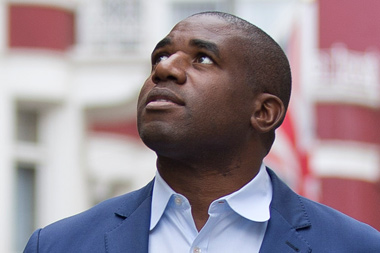Why we need "establishment mavericks" to rock boats from the inside

David Lammy’s surprising remarks on Labour’s election prospects conceal a deeper agenda of not wanting to seem in thrall to the party line. But why is that so valuable to an aspiring Mayor?
Mark Fuller
Earlier this week, David Lammy MP – the only declared contender for Labour’s mayoral candidacy in London – gave an interview to the Huffington Post where he went on the record as saying he did not expect his party to win an overall Parliamentary majority next May.
This was interesting. Lammy is by no means a “usual suspect” when it comes to criticising his party’s leadership and direction. As minister throughout the last Labour government he was the epitome of an on-message team player – a record he has more or less maintained since joining the opposition backbenches. If we were for a moment to cynically dismiss the notion that his comments are a sign of political candour, we could argue that Lammy may have calculated that the route to victory in the capital rests on emulating the “establishment maverick” precedent set by the two people who have so far worn the chains of office.

The establishment maverick is an increasingly rare breed. High-profile figures who are loyal to their parties – but able to articulate their values in a distinct voice without slavishly following the official line – are more often to be found among the political survivors of previous generations. The likes of Labour’s Dennis Skinner and the Conservatives’ Ken Clarke, who frustrate their leaders and energise the grassroots in equal measure, seem to be fading into British political history. Meanwhile, their status as charismatic political figures with popular appeal is being assumed by the likes of Russell Brand and Nigel Farage: rabble rousers with absolutely no interest in furthering the success of established parties.
The office of London Mayor, though, has been an exception. The machinations of the then-Party leadership may have forced Ken Livingstone to serve his first term as an independent, but his overarching commitment to Labour’s electoral success has never been in doubt. Likewise, Boris Johnson may stray wildly away from the party line on a regular basis – but no one doubts his true-blue, Conservative credentials. There is something about an important office based around a single, executive figurehead that inherently suits singular voices – albeit those that offer the security of familiar political affiliation. The appeal is clear: they embody the independent spirit required to fight a city’s corner against all other interests, but without the risks that a completely untethered radical may present.
In the past few weeks, a spotlight has shone on another area of public life that would suit an establishment maverick. Fiona Woolf had to step down as chair of the enquiry into historic cases of child abuse when revelations about her social and professional links to many of the subjects under investigation made her post untenable. Indeed, Woolf had followed in the footsteps of retired judge Baroness Butler-Sloss, who had previously had to vacate the role because of her own connections.
Given the seriousness of the allegations and the high status of the institutions being examined, the enquiry demands the leadership of a significant legal figure. However, the likelihood of finding such a figure completely free of any social or professional links to the individuals and bodies under scrutiny is remote. The allegations of corruption are so jaw-droppingly pervasive that no one would have been able to progress to the senior ranks of the legal profession over the past few decades without some level of potentially compromising contact. The answer, then, is not to seek out someone with no links to the “establishment” but to look for an outspoken individual with a record of challenging received wisdom from the inside.
Mark Fuller is Associate Director at corporate communications consultancy Linstock Communications.
Image of David Lammy courtesy of the Wikimedia Commons.

Press & Media Enquiries
For more information or to request interviews, contact CMI's Press Team on 020 7421 2705 or email press.office@managers.org.uk


